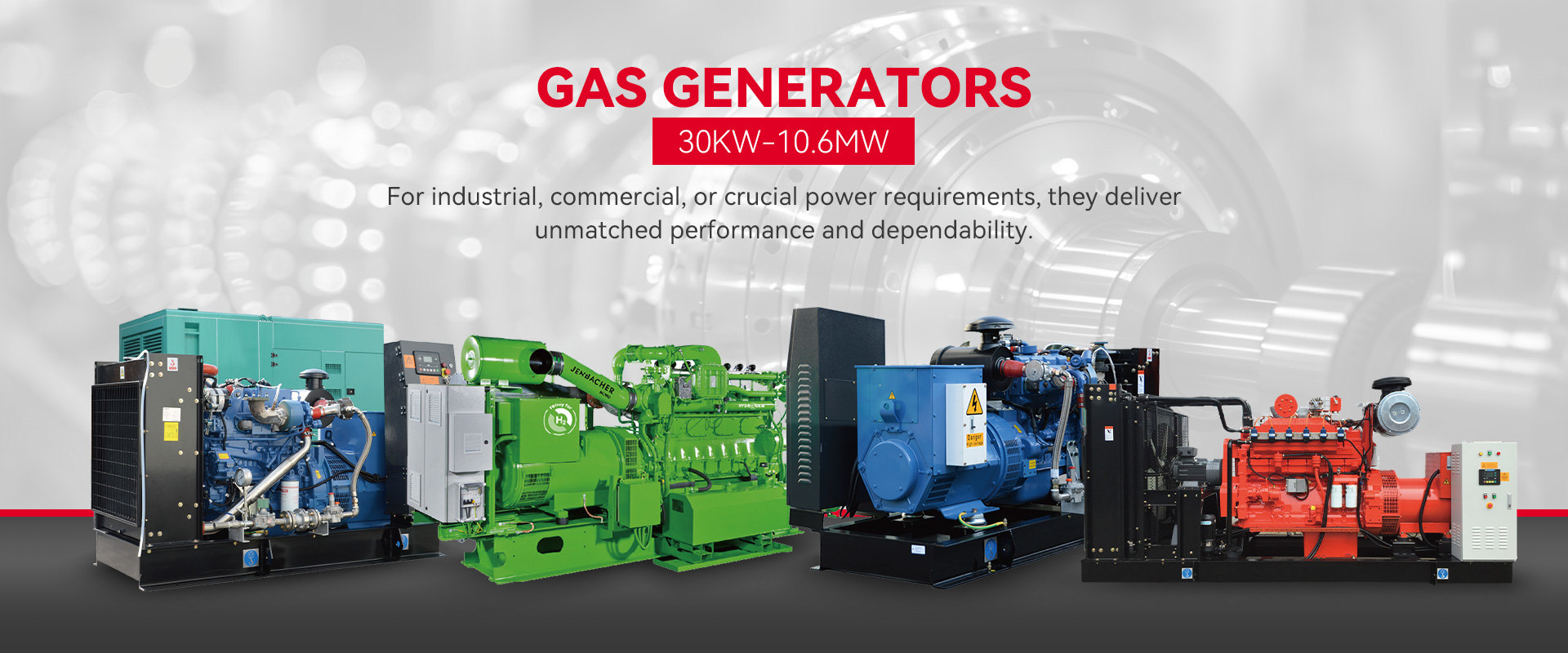In the world of backup power generation, two prominent options jump out: natural gas and diesel generators. When the power is out, as well as the dependence on it becomes critical, selecting the best generator set will make a huge difference. But how do you decide between gas and diesel generators? They all have its pair of benefits and drawbacks, as well as the choice ultimately depends upon your unique needs and circumstances.

In this post, we will learn about the distinctive features, advantages, and disadvantages of gas and heavy duty diesel generators sets, making it possible to create a well-informed decision on which option aligns best with your needs.
Gas main Generators
Advantages
Cleaner Emissions: One of the greatest features of gas main generators is their lower environmental impact. When gas burns, it produces fewer harmful emissions, including particulate matter, nitrogen oxides, and sulphur dioxide, than the diesel genset. This will make propane generators a greener choice for those interested in air quality and environmental sustainability.
Cost-Effective Fuel: Natural gas can often be more affordable than diesel fuel. The charge savings might be significant over the long term, specifically if you plan to make use of your generator frequently. Furthermore, the production of natural gas is often more stable, reducing price fluctuations.
Less Maintenance: Natural gas generators typically require less maintenance than their diesel counterparts. This results from the cleaner-burning nature of propane, which ends up in fewer deposits and soot buildup inside the engine, extending the generator’s lifespan.
Quieter Operation: Propane generators provide quieter operation. It is a vital consideration in areas and settings where environmental noise must be minimized.
Disadvantages
Limited Fuel Storage: A disadvantage of gas main generators is attachment to a continuing availability of gas main. This is problematic during extended power outages or perhaps remote locations a frequent gas supply will not be available.
Lower Energy Density: Natural gas includes a lower energy density in comparison to diesel, meaning you could possibly demand a larger storage capacity or higher frequent refuelling for a similar power output.
Lower Fuel Efficiency: Gas main generators are usually less fuel-efficient than diesel generators, that may increase operational costs over time.
Lower Portability: As a result of requirement for a passionate natural gas supply, these generators are less portable and versatile than diesel generators.
Diesel Generators
Advantages
High Energy Density: Diesel fuel is acknowledged for its high energy density. This implies diesel generators provides more power in the smaller package, which makes them suitable for applications where space is restricted.
Fuel Storage: Diesel generators hold the good thing about being able to store fuel for longer periods without degradation. This may cause them a trusted choice for backup power in remote locations and during long-term power outages.
Fuel Efficiency: Diesel generators provide fuel efficiency, consuming less fuel for similar power output as propane generators. This leads to lower operational costs.
Greater Reliability: Diesel engines are typically better and sturdy, which can lead to greater reliability in demanding conditions. They are generally the go-to option for mission-critical applications.
Disadvantages
Emissions and Environmental Impact: Diesel generators emit higher levels of pollutants, including nitrogen oxides and particulate matter, that may have uncomfortable side effects on air quality and public health. Stricter emissions regulations are already carried out mitigate these issues.
Noise Levels: Diesel generators are likely to be noisier than propane generators, which is often a concern in areas or where noise pollution can be a consideration.
Fuel Availability and price: Diesel fuel could be costlier and susceptible to price fluctuations. Additionally, storing large quantities of diesel fuel can cause safety and environmental risks.
Maintenance Requirements: Diesel generators typically require more frequent maintenance due to soot and carbon buildup inside the engine, that may increase the overall cost of ownership.
When to Choose Propane Generators?
Environmental Concerns: In the event you prioritize environmental sustainability and cleaner emissions, an all-natural gas generator could be the approach to take.
Cost Savings: If you’re seeking to reduce fuel costs in the lon run and possess entry to a dependable gas supply, gas main generators could be more cost-effective.
Quiet Operation: In residential areas or places where noise levels has to be kept low, gas main generators would be the quieter choice.
More uncommon Use: In case your generator serves as a backup for occasional power outages, the low maintenance requirements of gas main generators make them an expedient option.
When you should Choose Diesel Generators?
High Power Requirements: If you need a high-power output in a compact package, diesel generators, making use of their high energy density, include the better choice.
Reliability: For mission-critical applications where reliability is paramount, for example data centres or healthcare facilities, diesel generators in many cases are preferred due to their robust and durable engines.
Remote Locations: In areas with limited entry to a natural gas supply or during long-term power outages, diesel generators using reliable fuel storage would be the better choice.
Frequent Use: If your generator might find frequent use so you prioritize fuel efficiency, diesel generators can be less expensive in the long run.
Conclusion
The decision between gas and diesel generators is dependent upon your unique requirements, budget, and environmental concerns. Both varieties of generators have their own advantages and disadvantages, along with the secret’s to carefully evaluate your requirements priorities before you purchase. Additionally, make sure to understand local regulations and emissions standards which could affect your option.
More info about gas engine check this useful site

